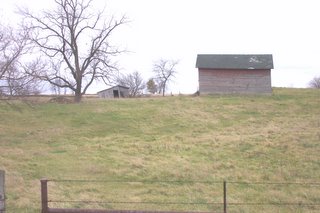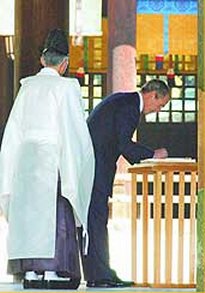That our daughters may be as pillars, Sculptured in palace style;

My parents decided to wait until they had 8 sons before having a daughter. I was 17 years old when my sister was born and never had an opportunity to live in a house with little girls until God was pleased to send a couple daughters to my wife and I. I’d like to share a few of my thoughts on raising daughters, knowing that they are wildly unpopular by today’s standards and sadly, even resisted in many of today’s churches.
It is our desire to raise our daughters according to what God has revealed through His Word. I reject the notion of beauty that is described by the pictures of the sundry magazines you will find by the checkout counter and would consider that true beauty is realized only when men and women accept and embrace the biblical pattern of life that God has ordered for them. Thus is is the deire of my wife and I to raise our daughters so that they will be virtuous women who fear God and whose works will praise them in the gate.
1 Timothy 5:14 Therefore I desire that the younger widows marry, bear children, manage the house, give no opportunity to the adversary to speak reproachfully.”
Titus 2:5 To be discreet, chaste, keepers at home, good, obedient to their own husbands, that the word of God be not blasphemed.
1 Peter 3:4-5 rather let it (the adorning of the woman) be the hidden person of the heart, with the incorruptible beauty of a gentle and quiet spirit, which is very precious in the sight of God. For in this manner, in former times, the holy women who trusted in God also adorned themselves, being submissive to their own husbands,
I share just a few of the many Scriptures that deal with what God has intended for the woman. From these verses, and other similar ones that support them, it is obvious that God generally desires that daughters grow up to become wives and mothers. It is our desire that our daughters grow up and desire to marry, to be obedient to their husbands, to bear children if God would be pleases to grant them, and to be keepers at home.
As we labor as parents to this end, we will train our daughter in just such a fashion. Already our oldest daughter spends much time with my wife, and at age 6, is already a great help around the house. We educate her in the same manner as we do the boys, and she helps me in my projects as well, but all the while we are teaching her that God has designed specific roles for both man and woman.
It is also our desire to see our daughters grow up to greatly value the instructions of conduct that are outlined in the Scriptures. We wish for our daughters to be virtuous, chaste, and lovely. These are ideals that are mocked by the world and we can rest assured that world will war against us as we strive to maintain godly habits..
One of my favorite passages pertaining to chastity is found in the Song of Songs:
THE SHULAMITE’S BROTHERS We have a little sister, And she has no breasts. What shall we do for our sister In the day when she is spoken for? If she is a wall, We will build upon her A battlement of silver; And if she is a door, We will enclose her With boards of cedar.
Here Solomon speaks of a question that his brother in laws would ask when their sister is young. They recognize that there is a duty for the family to consider in the upbringing of their daughters. He uses two metaphors to describe these duties as they prepare their daughters for the day in which they will be spoken for, the fortified walls designed to protect the city and the door that will be closed until the day in which God joins her to a man and grants only that man at that day the key to let himself in.
Our families must see to it that we rear our daughters within the confines of this great wall of protection. Her father and brothers must man the battlements of the wall, armed with bows and buckets of boiling oil, to keep within the bounds of the metaphor, to see to it that their daughters are not defiled. These daughters must be taught that only the marriage bed is honorable and that they are designed to be chaste, moral, and upright of character.
Sadly, as we observe the ladies of the land, we rarely observe fortified cities and closed doors. The walls are in ruins and the doors have been burned. Godless individuals walk in and out of the ruined and wasted cities, committing all manners of sexual sins, delighting in their wickedness rather than ruing the destruction and misery that has fallen upon them.
Even those within the church, rather than weeping over this destruction as did Nehemiah when he heard of the destroyed walls at Jerusalem, are often found gazing upon the ruins with somewhat of a wistful glance, even daring to approach it if they can. Through their entertainments, Christians often find great pleasure in these ruined cities, for while perhaps they may claim that they view adultery and fornication as sinful and have not committed specific acts themselves, they allow all manner of such acts to be displayed via their television sets and through the lyrics of their music. Rather than viewing such sins as an abomination, we find ourselves desiring to be entertained by them.
Often our styles of clothing reveal our desires to reject the biblical ideal of modesty and chastity. We may have erected a wall of sorts and perhaps there is a door, but we have chosen to discard the lock and to leave it ajar. I have observed many a Christian women wearing clothes that are so tight and immodest that one wonders what it is that they are wishing to display.
Solomon reveals, however, that this desire to protect and defend the honor of our daughters is a thing of beauty. We are not speaking here of an image of sons and fathers with missing teeth armed with shotguns while their daughters are locked in the cage. We are speaking of a glorious picture of very true beauty as we accept in delight in the law of the Lord. These battlements upon the wall are made of silver and the doors are carefully crafted with cedar. This work is a beautiful work that honors both God and man. We are seeking to protect our daughters for that day in which God is pleased to make them one with their husband.
THE SHULAMITE I am a wall, And my breasts like towers; Then I became in his eyes As one who found peace.
There is a day coming if the Lord will in which we will give our daughters to another. I pray that we will be faithful parents and that God will bless our efforts and that we will be able with great pride deliver to our new son a daughter who will become in his eyes as one who found peace, a virtuous woman, a loving and obedient wife, and a godly mother, who will bless her mother and I with grandchildren when we are old. Please pray for us as we embark upon so difficult a task.



